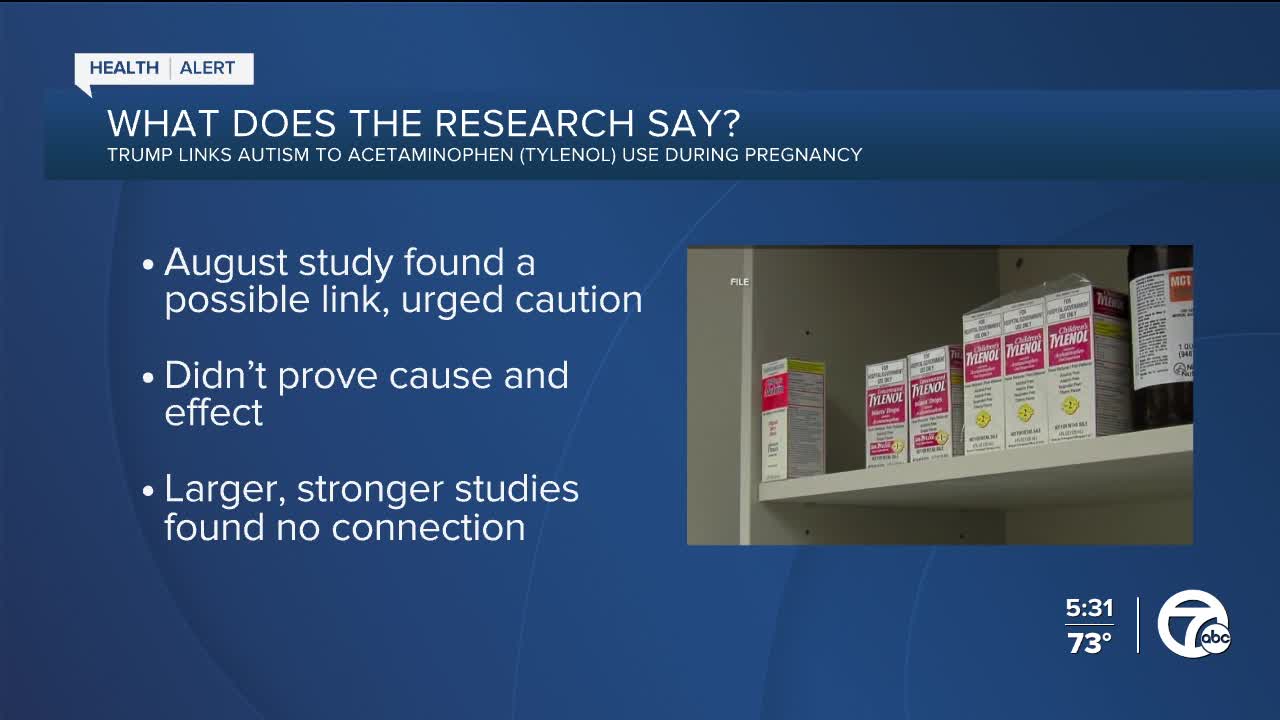(WXYZ) — President Donald Trump is expected to make what the White House is calling a “historic” announcement. He told reporters he believes the use of the painkiller acetaminophen during pregnancy is “a very big factor” in raising the risk of autism.
That’s raising questions for many families.
There are some earlier studies that suggested a possible link between autism and acetaminophen, the active ingredient in Tylenol. An August review by Mount Sinai and Harvard researchers this year found a possible link. They recommended caution: using only the lowest effective dose for the shortest time during pregnancy and while under medical supervision.
But here’s the thing: the studies in this review were small and didn’t prove cause and effect. Whereas larger, stronger studies — including one that looked at more than 2 million children — have found no connection between Tylenol use during pregnancy and autism.
Science has shown that autism is mostly rooted in genetics. Scientists have found hundreds of genes that play a role. These can be passed down, even if parents don’t show signs. Or mutations can happen as the baby’s brain develops and cells divide and make mistakes. Genes set the stage, but environment and biology also play important roles.
Now, what I’m concerned about is that women will avoid Tylenol and its active ingredient, acetaminophen. Because what we do know is that untreated high fevers during pregnancy can be dangerous. Fevers have been linked to neurodevelopmental issues in the baby and can increase the risk for miscarriages and preterm birth.
Leucovorin is a medication. It’s an active form of folic acid. Doctors usually prescribe it to counteract chemotherapy side effects or treat folate deficiency.
A few studies have tested leucovorin in children with autism, and it has shown some promise. Some children showed better speech and communication. But it’s not a cure and it doesn’t help everyone. It may work in certain subtypes of autism but not across the whole spectrum, linked to more than 100 genes. So we need more research.
As for other pain relievers, the bigger risk comes if women turn to alternatives like ibuprofen or aspirin. Those can actually cause serious problems for the baby. They’ve been linked to kidney and heart problems, and they’re especially risky in the third trimester.
So it’s important not to let fever or pain go untreated. And always talk with your doctor before starting any medication when you’re pregnant.




